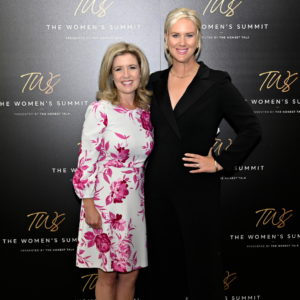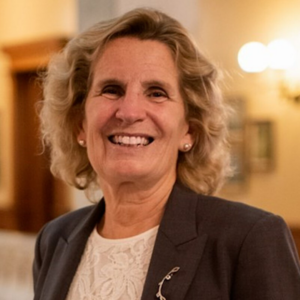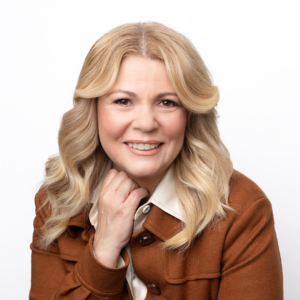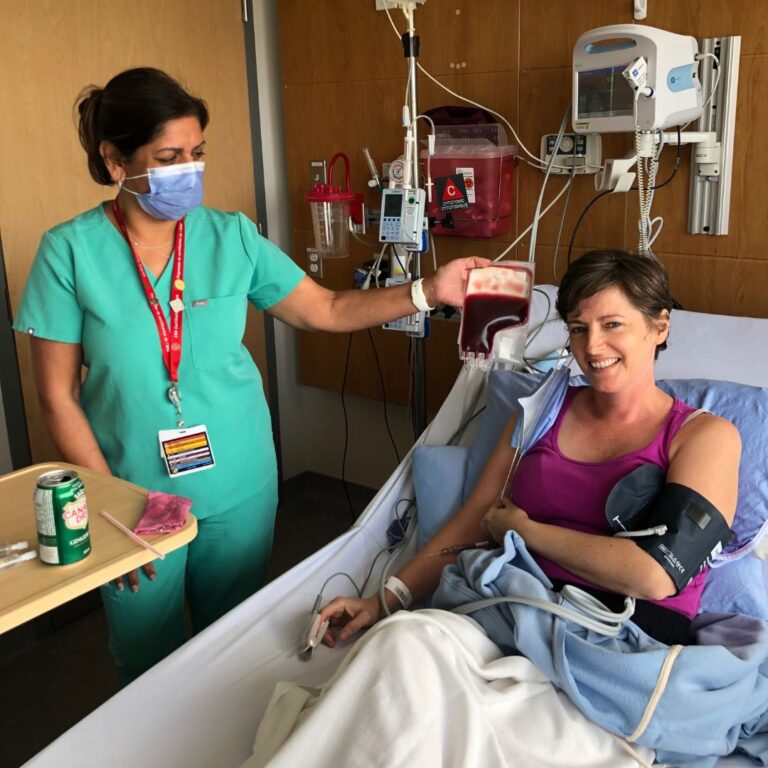Jennifer Gunter — Canadian gynecologist, author of The Vagina Bible, The Menopause Manifesto, and Blood
Dr. Jennifer Gunter is a Canadian obstetrician and gynecologist, a pain-medicine physician, a podcaster, and a best-selling author. Her books The Vagina Bible, The Menopause Manifesto, and her latest, Blood, have brought conversations about women’s health and periods to an absolutely new level.
Dr. Gunter has been described as the most important truth teller in women’s health.
She joined us at The Honest Talk to chat about women’s health, the myths and stigma around it, her own life, and the challenges we as a society are facing right now.
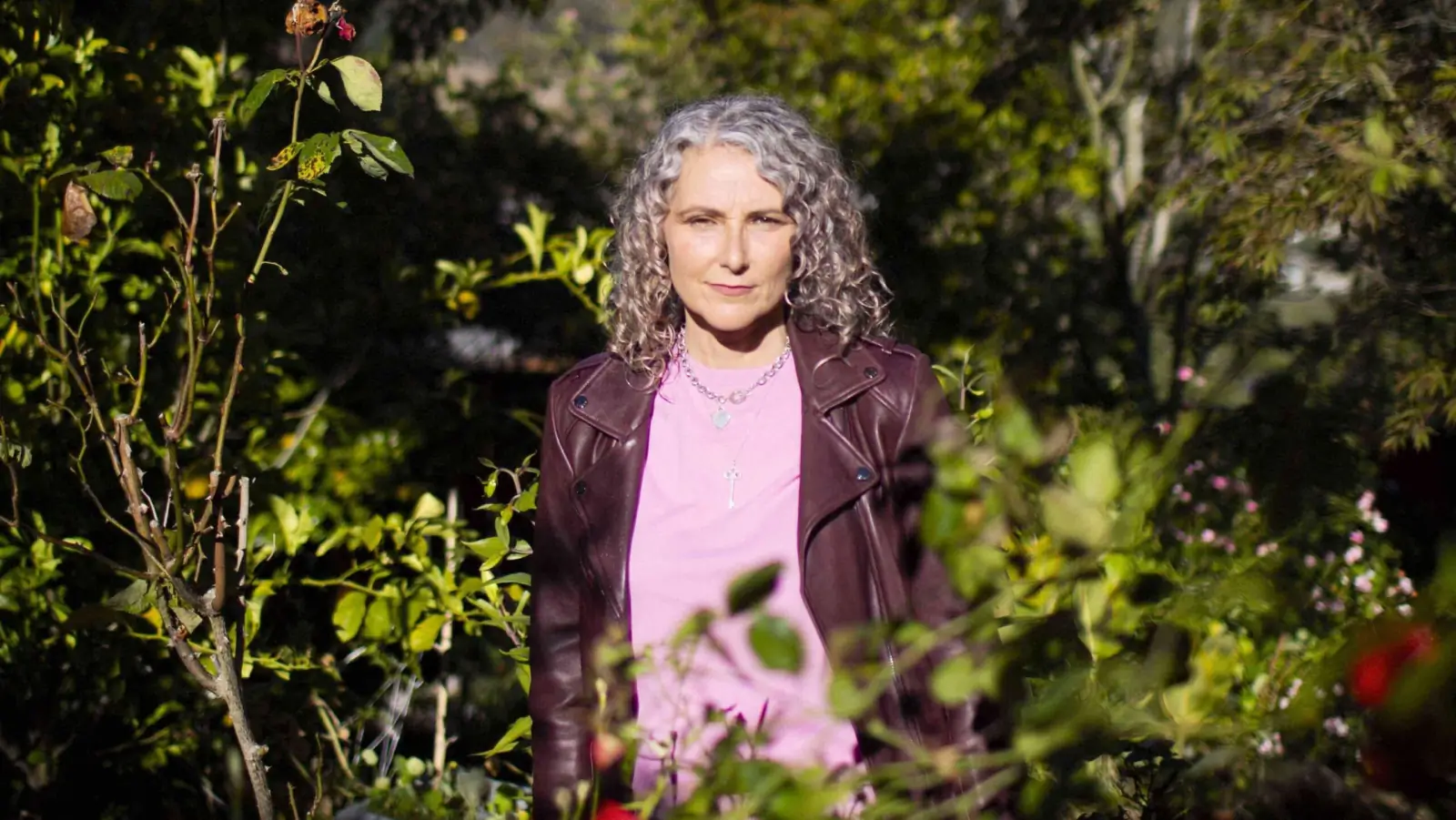
Catherine Clark: I’m not sure how you grew up, Jen. You had a bunch of sisters, so maybe your experience was different from mine as an only child, but we did not do a lot of talking about sex and menstruation or even menopause in my house.
Jennifer Stewart: Well, I had older sisters, so I knew I always had people to turn to with questions, but whether they were giving me the right answers or not is debatable. They should still apologize to me for the crazy things they told me when I was a kid — like I was going to lay a marble when I was 12 years old when I first got my period.
Catherine Clark: That’s terrible. You could have used a Dr. Jen Gunter in your life.
Dr. Gunter on breaking taboos around women’s health
Jennifer Stewart: Dr. Gunter, you made a point of writing and speaking about topics that we traditionally don’t talk about or they’ve been taboo for women to talk about. That’s changing a lot because of you.
Why did you decide to talk so openly about these topics and be an advocate for breaking down that barrier of taboo around these topics?
Dr. Gunter: I realized that my patients were coming in really uninformed about their bodies. Nobody’s taught about it in school — because something terrible is going to happen to you if you learn, for example, how your uterus works, but not if you learn how your kidneys work — and they were having trouble navigating it at the doctor’s office because they didn’t have the words.
I just kind of got obsessed with the idea of, how do people not know this? It could be about vaginal health or about menopause or about menstruation. And I started with kind of my crusade to fix disinformation about the vagina. And then I moved on to menopause. And now I’m here looking at the whole menstrual cycle.
Catherine Clark: Can you talk to us a little bit about your latest book, Blood? Because you say on your website, and I found this really interesting, that the patriarchy has weaponized menstruation. And I wondered if you could talk to us about what that means to you.
Dr. Gunter: Almost every major organized religion has some kind of taboo or issue related to menstruation. Many cultures have and it’s been there since the beginning of medicine with the Greeks.
This idea that menstrual blood was polluting or dirty or toxic is really cross-cultural — not every one but many — and a very effective belief, right? If you want to control half the population, “here’s a visible sign that you’re dirty and toxic” is a great way to go about it.
When you tell people that this is poisonous, this is dirty, this is damaging, this is shameful, it’s because your body is inferior, that has a lot of ramifications. And, you know, it’s interesting because women are valued as basically breeders or what land you could bring to the relationship. You sort of have this whole thing weaponized against you, right? You’re supposed to have a lot of babies, but you’re also not supposed to have any sex at all. So, this idea that women are sort of inferior based on their biology is really baked into us on many different levels.
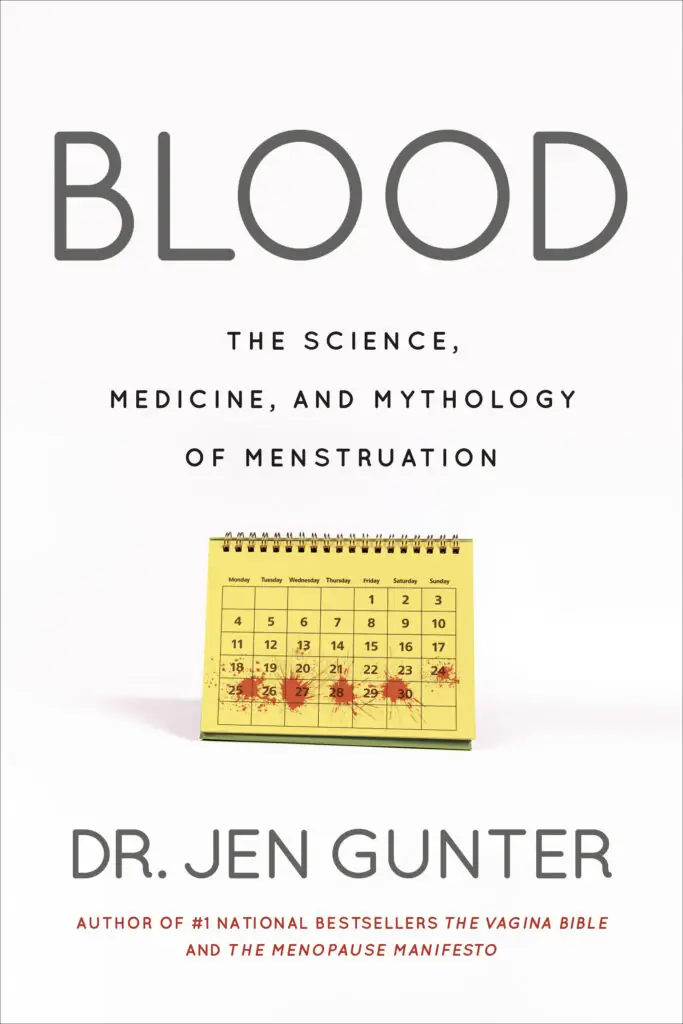
Jennifer Stewart: You’ve talked about the fact that there’s a culture of shame. We were just talking about that when it comes to our bodies. Why do you think we’re so uncomfortable about this?
Dr. Gunter: The short answer is the patriarchy. It serves the people in power, who want women to not be in power, for them to not know about their biology; it serves them to not be able to control reproduction and to live a life of poverty. It serves bad people in lots of ways. The best way to prevent people from getting knowledge about their body is to tell them the very thing they want to learn about is shameful.
How capitalism makes healthcare less inclusive for women
Catherine Clark: Can we also talk about women’s health in general in terms of healthcare and research? I am just constantly amazed at the fact that we really do underfund women’s health; we don’t focus on research that’s specific to women’s health.
Why do we have a problem with doing that? What is it that, in 2024, we still don’t understand that women and men are different and need different research and need access to different kinds of care?
Dr. Gunter: The short answer is capitalism. It’s easier to study things with people whose biology is the same every single day, right? If you want to design a drug and you want to get it out there, it’s cheaper for you just to study it in men, because you’re going to have to have a larger patient population to study it.
And with women, you’re going to have to account for all those cyclic variations. I’m not saying that’s right at all. I think that’s why we need governments to say, “Hey, if you want to design a drug, you have to be able to make sure that drug is applicable for everybody who can take it.”
In addition to the capitalism aspect of things, there is the fact that it was viewed to be unimportant. If you view women as inferior or lesser men, then you think that the biology for men is just going to work for them, you can kind of retrofit it.
And when all the professors are men, all the doctors are men, all the deans are men, all the writers of textbooks are men, the illustrators of textbooks are men, no one’s around to go like, “Hey, wait a minute.”
So that just became the standard for so long. Now things are definitely changing. We have many more women in medicine, many more women in research, many more women in government. However, there’s still a glass ceiling, right?
We don’t have that many women who are deans, we don’t have that many women who are world leaders, we don’t have that many women who are provincial leaders. So, we’re still not at that sort of parity at that level.
There are so many things we don’t know because of this and not just for women’s health. For example, polycystic ovarian syndrome is the most common hormone disorder that affects women of reproductive age. And we actually don’t really understand that much about it.
Some of it’s because the biology is really hard, it’s really complex. However, you could solve a lot of problems with money. If you have more funding, you can figure out a lot more things. I would say it’s underfunded, because we’ve allowed it.
Where women can find evidence-based information about their health
Jennifer Stewart: We have a lot of information wrapped in this blanket of wellness. Where, other than your books, do women honestly turn to get real, scientific, data-driven facts about their health?
Dr. Gunter: There’s a big void. There’s my show, Jensplaining, on CBC. But it’s a problem. It’s not in curriculums in schools. Kids are graduating knowing more about frog biology. And in both Alberta and Ontario, I believe, parents have to opt in to education about sex, which shouldn’t be called sex ed, but whatever. And when you say you have to opt in, that means the baseline is opting out. So that tells parents that it’s dangerous, right?
And of course it serves extremists to have you learn less about your body, which is really terrible, right? If you think about it, you have a provincial health care system, it’s better for the healthcare system to have everybody educated, so then they don’t ask for tests they don’t need, they come in when they’re early in the stages of illness when treatment is cheaper — never mind it being the right thing. It’s financially better, if you’re running healthcare as a business, for people to be educated. People are learning less and less about their bodies than I even learned.
What women should know about menopause
Jennifer Stewart: Not to oversimplify it, but what’s the number one thing you want women to know about their periods and about menopause that we never talk about?
Dr. Gunter: I would say for menopause, definitely, that symptoms can start before your last period. I think that’s like a real common myth that you have to have your last period to have symptoms. So, symptoms can start before, and then almost all symptoms can be managed in some way.
I would want every woman to know that the most important thing for your health is exercise. I don’t like that answer either. But we see the loss of muscle mass that women have as they age and their increased risk of osteoporosis and heart disease, diabetes, dementia, all these things. Exercise reduces all those.
We all talk about biohacking. The best biohacking is exercise. And I think one of the problems with women is we focus on other things, as opposed to going to the gym and getting strong. You can be a marathoner, you can be a weightlifter, you can be all these things. I would say that one message I’d wish for every woman is to start taking care of their bodies earlier in life.
And from a menstrual cycle standpoint, if you’re soaking into your clothes, you need to talk to your doctor.
Catherine Clark: Actually, we published a piece recently by a woman who was a television reporter, who talked about the fact that she had incredibly heavy, unexplained bleeding and the breaking point for her was she was on air and bled through her clothing into her chair and had to hide herself. And that generated a ton of reaction because there are a lot of women who every month have some version of that and who are getting dismissed, because it’s just like, “You just have heavy bleeding, you have your period, sorry.”
Dr. Gunter: And the problem is the people who are dismissing these women are having a lot of difficulty holding two independent thoughts. It can be just a heavy period, but that also should be treated. Just because it’s something that could be normal, it also might be a sign of a medical condition so it needs to be investigated. But even if it’s just how your periods are, there’s treatment for that — you don’t have to have that.
How women can advocate for themselves at the doctor’s office
Catherine Clark: What is your advice then for women in terms of advocating for themselves within a healthcare setting?
Dr. Gunter: The best thing is to be educated. If you’re having heavy periods, there’s a page in the book Blood all about that. I list out what are the objective criteria for having heavy periods. But if you think your periods are heavy, that’s also a reason to go in — you don’t have to meet that objective criteria.
So if you go in and you say, “This is happening to me,” and the doctor says, “Well, that’s normal,” you say, “Well, it doesn’t matter. It may be normal, it might not. But look, this is what Dr. Gunter says. I need to have my iron level checked, I need to have a CBC check, I need to have an ultrasound.” And depending on your age, you might need to be checked for cancer. If you’re 21, it’s a little bit of a different investigation than if you’re 49. If you’re 21, and your periods have always been heavy, you need to be checked for a bleeding disorder, right?
A lot of people tell me that when they’ve read my books, they go in and they’re able to just basically say to their doctor, “This is what I want.” And the doctor’s like, “Oh, that’s totally reasonable.” And then they get it, because they’ve come in with good evidence-based medicine.
When you have a 12- or 15–minute visit, it’s really hard. So if you can go in really prepared for that visit, knowing about the condition, being able to describe your symptoms. I tell people to write down what’s bothering them — the list of things on a piece of paper, because as soon as you’re there it’s going to evaporate. But also you need to understand that your doctor might not be able to solve a list of 12 symptoms in one visit. So, be prepared to only work on the first two.
Catherine Clark: But at least it provides context, right? I really love that idea of a list, and that’s something I’ve adopted.
Dr. Gunter: I tell people to go in with your list, and think about what’s really bothering you. If you had a magic wand, what would you make go away today? Put that at the top of the list. Make sure your doctor sees the list because sometimes what’s not really bothering you is actually something that really bothers your doctor.
So, for example, if you have bleeding between periods that might not bother you too much. But your doctor might say, “Hey, you know what? You’re 49 and I’m worried that could be a sign of cancer. So we need to move that to the top.” If there’s nothing on the list that’s like red flags or alarm bells, then you want to focus on picking the first two things and work on those.
Women’s rights under attack in the U.S.
Jennifer Stewart: Dr. Gunter, you are Canadian by birth, and you’re living in the U.S. There’s a lot of talk right now and a lot of fear about women’s freedom being under fire in the U.S. And unfortunately, there’s a real possibility that the U.S. may elect again a man with some fairly stark, misogynistic tendencies. What’s giving you hope right now?
Dr. Gunter: It’s really hard down here to actually have a lot of hope, because you see large publications covering the multiple ‘trials’ of Donald Trump as if it’s just like regular news, as if it’s not something so far out of the ordinary. It’s like he’s late on homeowners’ association dues, right — that’s the weight they’re giving it. It’s really hard actually to be hopeful, because I feel like the press in the United States is very invested in treating this wannabe dictator — who’s a serial sexual assaulter, who is responsible for the fall of Roe vs. Wade in the United States — like he’s a normal person in the bounds of normal right and left discussions. He’s not. He’s in this whole different category, who’s talked about Putin like he’s like a great person. It just goes on and on. It’s very concerning to see his behaviours normalized in the press.
The one thing that’s given me hope is that when abortion was put on the ballot — as in, you’re going to lose the right to abortion — people turn out and vote in droves, and they vote to support abortion rights.
I think that tells us that we actually have to be very explicit. That speaking in euphemisms about abortion might make some people feel more comfortable, but they’re not the people who are really interested in rights. I think it tells us that people need to know what’s at risk.
The media is responsible for a big percentage of these campaigns of disinformation. And obviously, the politicians as well. I would also say for people in Canada, don’t assume that you’re safe. Fascism is always one election away.
And certainly when you see things like in Alberta and Ontario at a provincial level with complete, catastrophic underfunding of the healthcare system and opting out of learning about sex education, there should be a lot of bells and whistles going off for people.
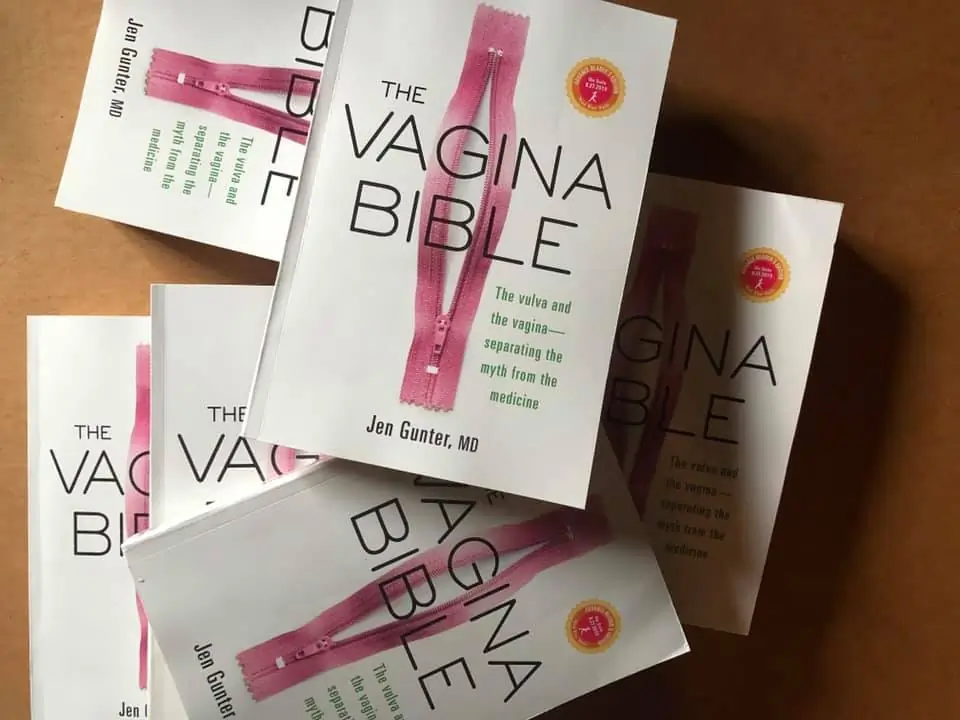
How to talk to kids about reproductive health
Catherine Clark: What do we tell our kids? I think we talk really openly with our kids now about a lot of these things in ways that’s not necessarily how we were raised. But what do we tell our daughters? But also, how do we talk to our sons? How do we ensure that we’re raising sons who are also attuned to this and part of the journey with us and supportive and advocating for us, too?
Dr. Gunter: Talk to your kids, regardless of their gender, the same way. Use the same language. Use the words vulva and vagina, penis, scrotum. Normalize saying them at an early age. They’re not harmful words. Normalize it and answer their questions.
One of the greatest pieces of advice I got from somebody who’s a sex educator, is use grade-appropriate language and just keep talking until they tune out. And as soon as it looks like they’ve tuned out, just stop. They’re bored, they’ve tuned out, but they’ll keep listening if they’re interested.
I have two boys. Nothing bad happened to them by learning all these words early.They were certainly more exposed than most people because of the books and the reading material lying around.
And I’ll tell you a funny story. A few years ago I was wearing a very short dress, and I made a casual joke like, “Oh, this is vagina-skimming.” And my son corrected me and said, “You mean vulva-skimming, mom.”
One of my sons is really proud that when his friends who are girls talk about having menstrual cramps or things like that, he’ll be like, “Hey, do you know you should take ibuprofen? Or hey, did you know that you should see your doctor about that?”
I think women are very happy when they see men taking an interest in what’s going on. And I actually had a couple of producers on a book tour who are guys, and they have to read the book for the segments, and their wives were thrilled that they’d read it. And they were just like, “I can’t believe how excited she was that I learned all these things. And I was telling her stuff about the cycle that she didn’t know.”
And I’m like, “Because people want you to be interested in their life experience, especially if you’re married to them.” So, hey, if there are any husbands out there, you should be reading this book!

